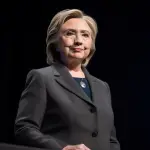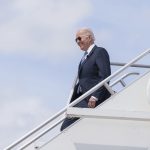Ronald Rowe, the newly appointed Acting Director of the Secret Service, is already in the hot seat after an assassination attempt against Donald Trump at a campaign rally in Butler, Pennsylvania, on July 13. Rowe recently stepped in to fill the shoes of former Director Kimberly Cheatle, who conveniently left after being caught up in various scandals herself. However, the only thing that seems to be heating up faster than political tensions is the scrutiny surrounding Rowe’s leadership.
Senator Josh Hawley from Missouri has been particularly vocal, raising serious concerns after whistleblower allegations suggested that Rowe’s actions—or lack thereof—played a significant role in the security failures at the Butler event. It turns out that basic protocol was ignored as reports indicate that the Secret Service’s Counter Surveillance Division, responsible for assessing threats at event locations, simply didn’t do its job. According to sources, there was no adequate threat evaluation conducted at the rally venue, and Rowe apparently opted to cut personnel from this crucial division. It appears that instead of increasing security measures, Rowe focused on slashing staff—definitely not the “safety first” approach the American public expects.
In a pointed letter to Rowe, Hawley outlined how the whistleblower alleged Rowe’s past decisions led directly to this security breach. Of particular note was the claim that if the CSD team had been on-site, they would have apprehended the would-be assassin before he could even pose a threat, all thanks to some basic surveillance equipment. It was even noted that Rowe conceded the security perimeter should have included a nearby complex, yet it wasn’t flagged. Apparently, protecting the former President was not a priority for Rowe, and it raises some eyebrows about what other safety lapses might have occurred under his watch.
Moreover, Rowe’s tenure as deputy director also opens him up to questions about retaliation against those who dared to voice concerns regarding security at previous Trump engagements. This scenario raises a big red flag about a culture of fear within the Secret Service. Hawley stated that personnel who voiced concerns about security protocols were reportedly ostracized for their bravery. The specific example cited was a golf tournament last year where agents raised alarms over inadequate local policing, only to be met with silence and punishment. Clearly, whistleblower protection took a backseat when political agendas were in play.
The vocal demands for transparency have not gone unnoticed. A chorus of Republican senators, led by Hawley, is calling for more whistleblowers to come forth with information regarding the Secret Service’s handling of Trump’s security. The message is clear: if there are issues within the agency’s leadership that jeopardize the safety of a former president, the American public deserves to know. With words from Senator Ted Cruz echoing the need for accountability, it appears that not only are they looking for answers, but they are also ready to expose the political bias that could very well explain why security measures fell short.
In the grand scheme, the situation surrounding Rowe and the Secret Service highlights a systemic issue within the agency when it comes to prioritizing political correctness over actual security. As senators and the public demand accountability, it’s apparent that those in power must reassess how they approach protecting high-profile individuals, especially in these divisive times. With serious questions swirling about Rowe’s competence and commitment to safety, it’s clear that the Secret Service may still have some significant soul-searching ahead of them.




